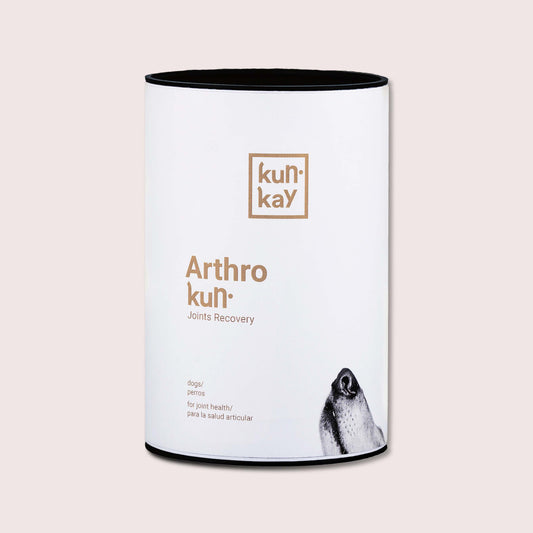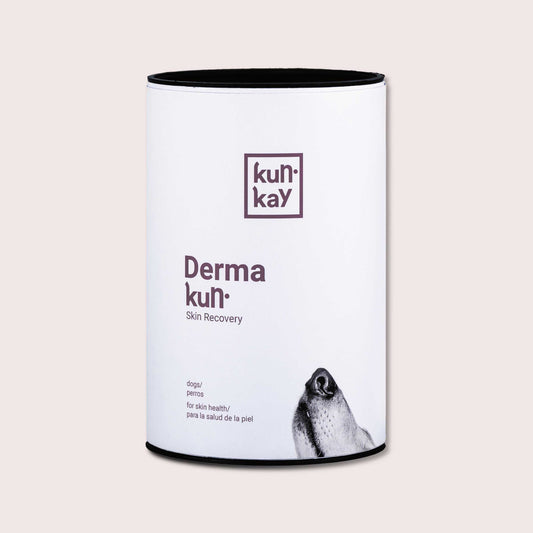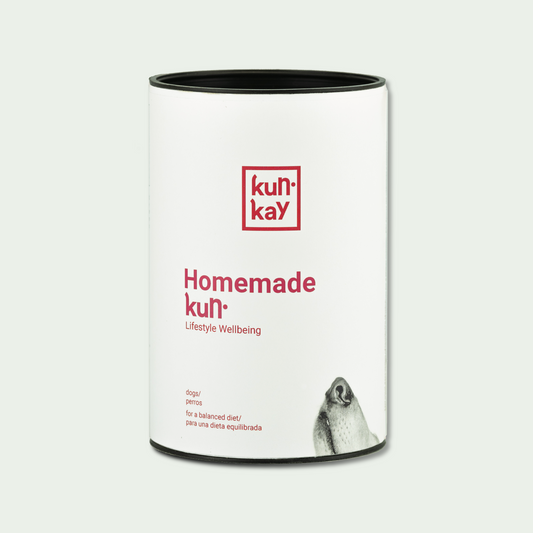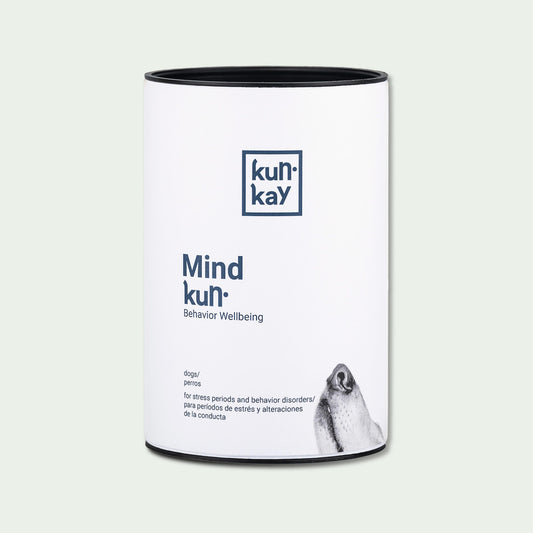Types of diarrhea in cats according to their pathophysiology
Diarrhea in cats is one of the most common symptoms when there is a gastrointestinal disease or imbalance but it can also appear for other reasons. For example, after deworming.
This gastrointestinal problem can be defined as an increase in the frequency, fluidity, or volume of stools and occurs because there is an increase in fecal water content due to different pathophysiological mechanisms. It is a common ailment and as long as it does not last for a long time or occur continuously, it is not excessively worrying. However, you should pay attention if your kitten has diarrhea and know how to act to solve this problem.
At Kunkay we help you take care of your pet's health by offering you the best natural supplements to complement their diet providing the vitamins, minerals, and nutrients they need to grow healthy, strong, and happy. Additionally, we also share with you all kinds of useful tips so you can give your kitten the best care.
For example, on our blog we have answered questions like what to do if my cat has a fever or we have told you which are the foods cats can eat (and which they cannot). This time we tell you everything you need to know about diarrhea in cats, we explain how long this problem usually lasts and the main differences this ailment has depending on its pathophysiology.
1. How long does diarrhea usually last?
Depending on the origin of diarrhea in cats, it can last up to three or four days. Whenever it lasts longer, even if you are taking measures to combat it, you should see a veterinarian.
In the case of small kittens or senior animals, you should pay special attention since this gastrointestinal ailment can be fatal if appropriate measures are not taken.
As soon as your kitten shows signs of diarrhea, make sure they are well hydrated and start with a half-day fast. If there is no improvement, go to your veterinarian to rule out more serious problems. Also, if you suspect your cat may have ingested any poisonous or harmful substance such as chocolate, go to an emergency vet at the slightest symptom.
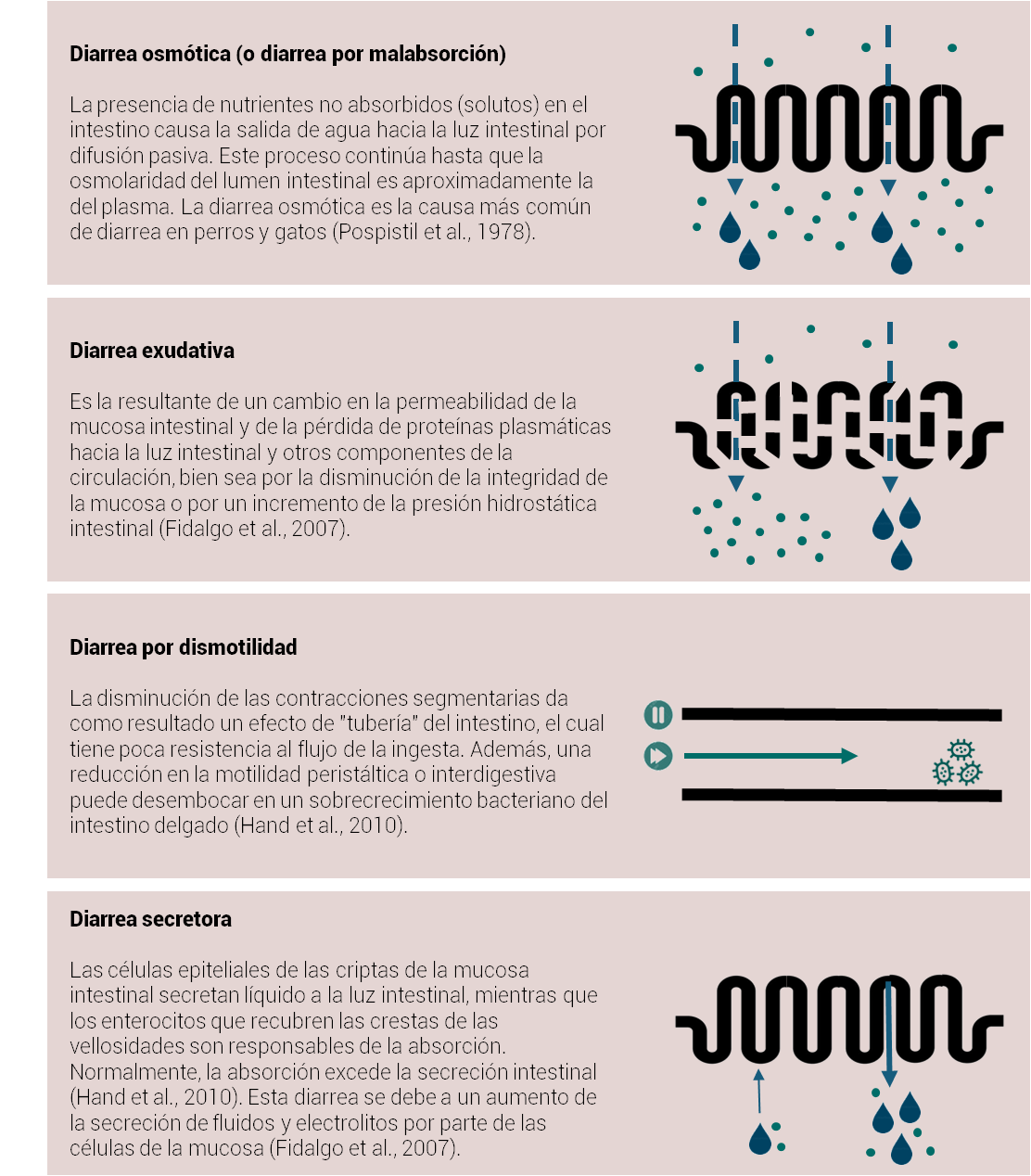
2. Osmotic Diarrhea
Also known as malabsorption diarrhea, it is the most common type in dogs and cats. It occurs because the animal has nutrients in its intestine that cannot or have not been absorbed.
This situation causes what is known as passive diffusion of water into the intestinal lumen, which makes the kitten have softened stools or even liquid diarrhea.
Some causes of osmotic diarrhea can be dietary overloads, bile salt deficiency, pancreatic insufficiency, or the presence of a disease affecting the mucosa of the small intestine.
3. Exudative Diarrhea
This type of diarrhea in cats appears when there is a change in the permeability of the intestinal mucosa that causes the loss of plasma proteins and other components of the circulation in the stools.
It is a problem usually associated with an infection that can either decrease the integrity of the intestinal mucosa or increase intestinal hydrostatic pressure. Often it starts similarly to secretory diarrhea which later complicates, and it is generally accompanied by fever.
4. Dysmotility Diarrhea
This type of diarrhea occurs without altering the absorptive capacities of the intestinal mucosa. What happens is that the muscles or nerves controlling the digestive system's function are unable to perform properly, causing a “pipe” effect in the intestine.
In other words, the animal cannot control the contractions to contain and evacuate stools properly.
5. Secretory Diarrhea
This type of diarrhea in cats occurs when an abnormal amount of extracellular fluid is excreted. Specifically, it is a pathology that appears when there is increased secretion of fluids and electrolytes by mucosal cells.
In its early stages, it is very similar to osmotic diarrhea with the difference that in secretory diarrhea, the animal will continue to excrete even when fasting.
6. Diarrhea after Deworming
Diarrhea is a quite common side effect after deworming that can last between two and four days. If it persists beyond this period, especially if it lasts more than a week, it is important to consult a veterinarian to rule out more serious problems.
Supplements for cats can be a great support to care for your kitten's gastrointestinal health and offer the help needed to recover from problems like diarrhea. Within our wide range of products, this time we recommend the nutraceuticals Enterokun Severe and Enterokun Mild from the Digestive Recovery line, two natural supplements that serve to treat diarrhea and counteract its side effects, both in mild and severe acute processes as well as in chronic and recurrent disorders. There are many diseases that cats can have, and diarrhea is one of them.
REFERENCES
Fidalgo Álvarez, L.E.; Rejas López, J.; Ruiz de Gopegui Fernández, R.; Ramos Antón, J.J., 2007.Veterinary Medical Pathology (University of León, Ed.) 1st edn.
Hand, M.; Thatcher, C.; Remillard, R.; Roudebush, P.; Novotny, B., 2010:Small Animal Clinical Nutrition. (Mark Morris Institute, Ed.) 5th edn.
Pospischil, A.; Mainil, J.G.; Baljer, G.; Moon, H.W., 1987. Attaching and effacing bacteria in the intestines of calves and cats with diarrhea.Veterinary Pathology, 24, 330-334.

